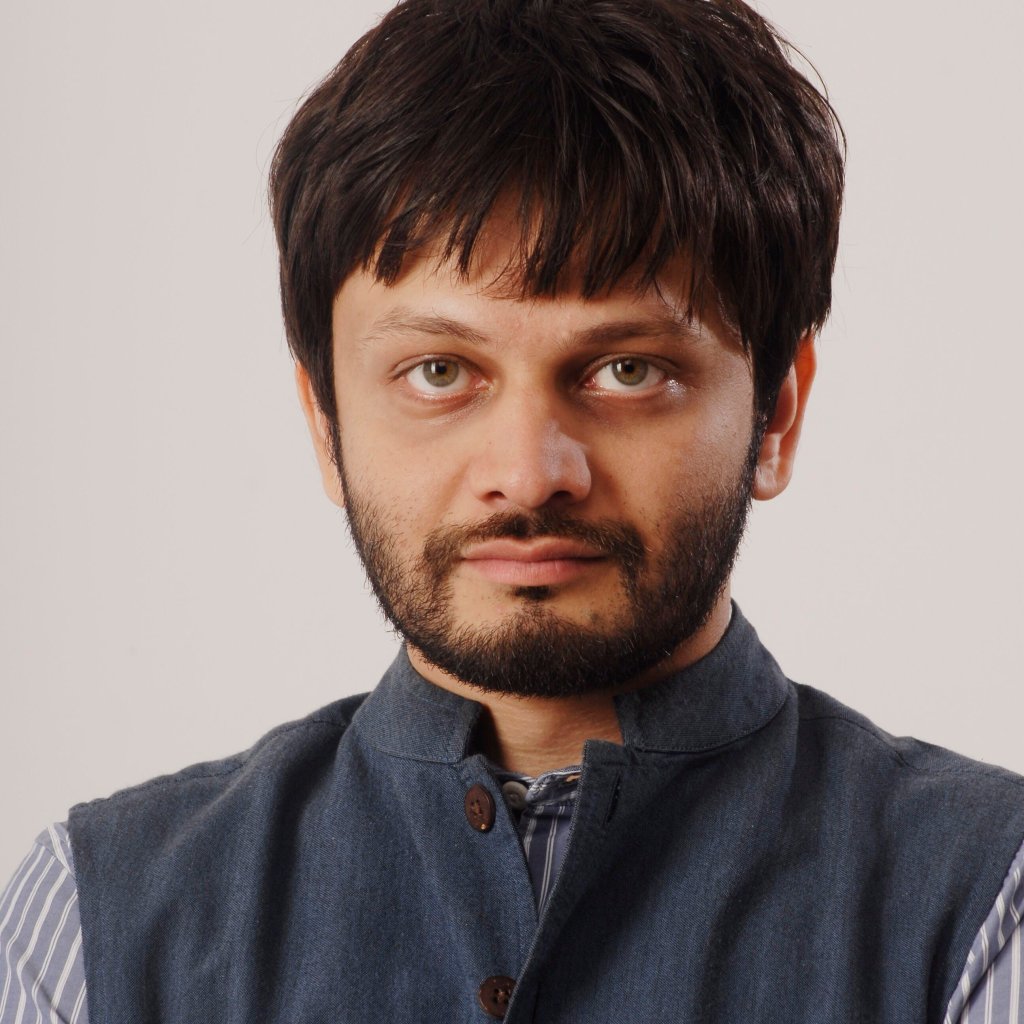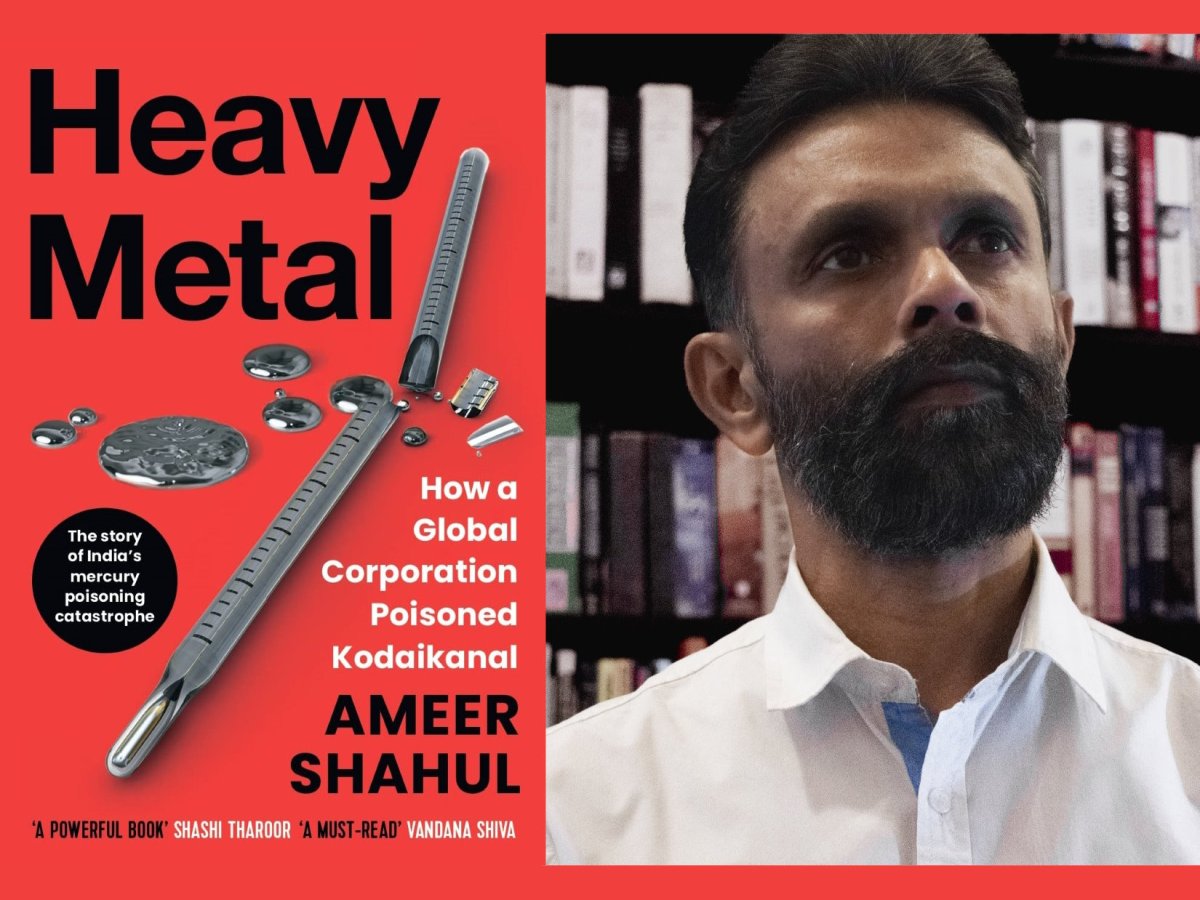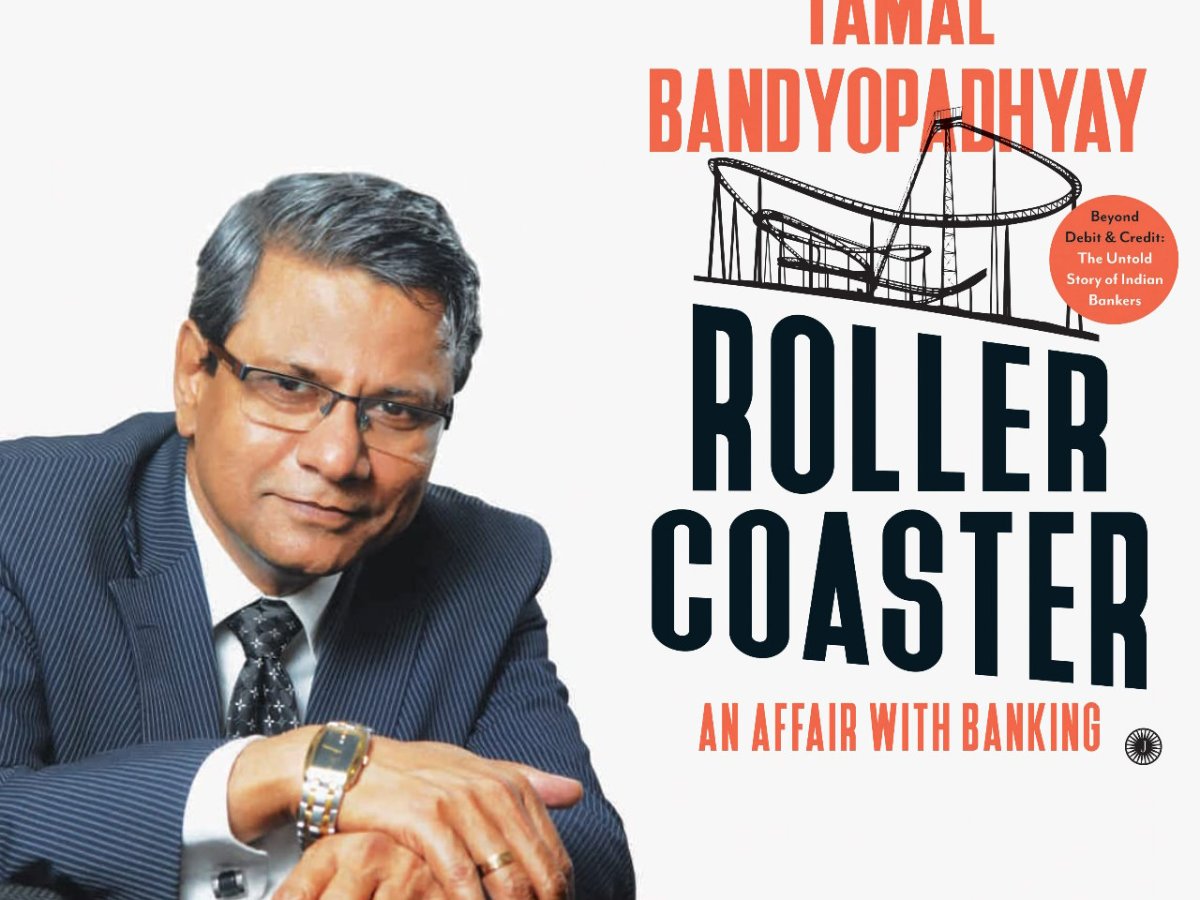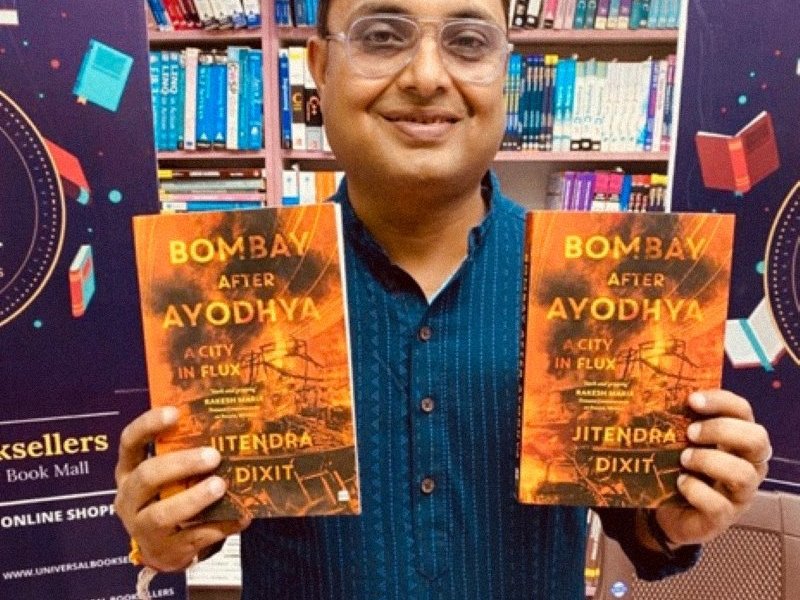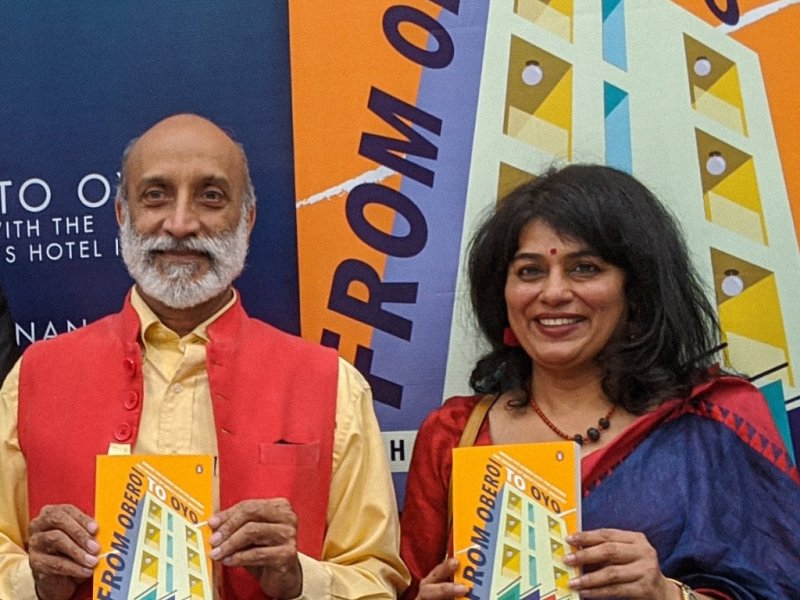A seasoned business journalist, Mihir has worked with CNBC TV 18, Reuters News and Mint, and has written extensively on startups and ecommerce companies. His first book, Big Billion Startup, which charted the rise of India’s own ecommerce behemoth, was a smash hit when it was released in 2019. The book won prestigious awards, including the Gaja Capital Business Book Prize 2020 and CK Prahalad Best Business Book Award 2020, and garnered widespread acclaim and appreciation. Last month, an updated edition of the book was released, with fresh details on how Flipkart has fared after Walmart acquired a 77% stake in the company in 2018. This, we’re sure, adds a new dimension to an already accomplished piece of work. BooksFirst.in caught up with Mihir for a quick chat about his work in journalism, his book and his thoughts on Flipkart and its founders.
Tell us about your early years in journalism, with CNBC and Reuters. What was it, back then, that was most interesting/exciting about working as a journalist? Would you say that with the rise of the Internet over the last one decade, journalism in India has changed in significant ways? For you, personally, is journalism still as exciting now as it was when you started back in 2008?
I became a reporter right around the time of the global financial crisis. As a business journalist you couldn’t have chosen a better time to enter the profession. It was especially instructive because journalists, as a group, had failed in their duty to scrutinise the big banks. People had no idea about the dangers of the financial system that had been built after deregulation. The experience of watching all this unfold was formative for me.
As for the rise of the Internet – it has definitely hit journalism in India. Even though journalism here, as a business, hasn’t suffered as much as in the US and some other Western countries, its power and influence are diminished. The government has no tolerance for scrutiny and media houses have fallen in line. Financially, they’re not in the best of shape. All this has hit newsroom cultures and working conditions. Many of the journalists I’ve known over the years have either left or are considering quitting or are disenchanted with journalism. You’d struggle to find many journalists who are optimistic about the profession.
My interest in journalism, however, has only deepened over the past few years. It’s because I’m now working on subjects that really excite me. I’m only doing long-form journalism, and reading modern Indian history, which has no connection with the kind of business journalism I was doing earlier.
From 2015 onwards, you covered ecommerce companies quite extensively, did some major stories and won many awards. What was it that attracted you towards writing about ecommerce companies? As a writer, what were some of the most challenging things about covering the ecommerce beat in those days? Any funny / memorable incidents from back then, which you remember?
I was based in Bangalore and covered liquor companies for a couple years. I was a bit bored and was about to move cities when the unprecedented startup funding boom suddenly happened in 2014. I had been writing on startups here and there because Mint didn’t have a startup reporter. As it became clear that the funding boom was real, startup reporting suddenly became the most exciting beat in business journalism. So I decided to remain in Bangalore and moved to covering startups full time.
One particularly frustrating problem about writing on ecommerce was caused by the high level of churn at the companies. You’d spend months cultivating sources and just when they’d started to open up they’d leave or get fired! So you’d constantly have to make new sources and that’s not easy. But it was a genuinely exciting and novel space to cover. A recurring memorable, unpleasant but perhaps funny experience was that, depending on the story, people at Amazon and Flipkart would accuse you of working for the other company. One person connected with Amazon at the time had even accused me of orchestrating Flipkart’s rise just by covering the company! Conspiracy theories still had the power to shock at the time.
Your book, Big Billion Startup, has been a massive hit, has garnered critical acclaim from all quarters and won major awards. What was Pan Macmillan’s first response when you approached them for the book? What was the most significant thing about Flipkart, which inspired you to the book?
Luckily for me, I had offers from most of the major publishing houses. Flipkart was such an obvious candidate for a business book and I had written extensively on the company for many years. I chose Pan Macmillan primarily because the editor there, Teesta, seemed like the best fit for the book. I’m very glad I chose them because Teesta’s edits helped immeasurably, and Pan Macmillan also put all their sales and marketing resources behind the book. It’s critical to have this support and rare too. I also realised that it takes so much effort and luck for a book to be successful. It was impossible to anticipate that so many things would fall into place.
Since I had been covering Flipkart I was intimately aware of the drama at the company. That itself provided enough fodder for an interesting book. But the most significant thing about Flipkart was that it was the country’s first massive Internet company, the one truly too-big-to-fail startup. Flipkart’s failure or lack of success would’ve damaged the startup scene. Its successful exit, on the other hand, validated the startup scene here like nothing else could.

Aggressive, badly behaved founders – people who exhibit abusive behaviour – seem to be a common thread across many successful start-ups. Personally, do you think being an aggressive ‘Alpha Male’ (or, in the case of female founders, having an alpha male mindset) is a key ingredient for success for those who are running a startup?
I think many founders and VCs believe that a God mindset is required to create huge companies in little time. I’m not sure whether this is true but whether this is true or not doesn’t really matter because it has now become ‘common sense’ in the startup world. The role models for many entrepreneurs are Jobs, Bezos, Kalanick and people like them. The myth that you need to be an asshole in order to succeed has been repeated so many times that it’s now taken for granted. There are exceptions, of course, but the exceptions only prove the rule.
In the case of the Bansals, what would you say were some of the key ingredients of their massive success with Flipkart? Neither is now associated with Flipkart. Do you think Flipkart will continue to do just fine without them, or are there any ways in which the company will, at some time, miss its founders and the vision they had for Flipkart?
Their skills were complimentary. That was the biggest plus for them and for Flipkart. Sachin was the big thinker, the super ambitious CEO, and Binny was the more grounded COO who would spend more time on thinking about how to get things done. Sachin was the hot tempered entrepreneur type whereas Binny was the calmer of the two. As a pair they were clearly superior to most other Internet company entrepreneurs of the time. But by the time of their exits in 2018, Kalyan Krishnamurthy had seized control of Flipkart. The management team was of his choosing and he was deeply immersed in daily operations. Myntra and PhonePe were also run independently.
So the departures of the Bansals, while sudden, scandalous and shocking, did not have a big impact on Flipkart’s performance. Some Flipkart leaders believe that while Kalyan has done a good job in keeping it ahead of Amazon, Flipkart has become a much less ambitious company than it was when Sachin and Binny were running it. But there’s also the case to be made that Flipkart had grown too big for the founders and needed an outsider with a different set of skills.
Tell us about the new, updated edition of Big Billion Startup? What has been added to the book that wasn’t there previously?
We just released the paperback edition of Big Billion Startup. The original book ended with Flipkart’s sale to Walmart. The paperback has a completely new chapter with fresh details on how Flipkart has fared under Walmart. Apart from fresh reporting on the internal workings of Flipkart it looks at the impact of Reliance and Tata and how the government’s hostile attitude towards American firms has hit Flipkart and Amazon. The paperback also has an exciting new cover (and it’s cheaper). As an objective observer, I highly recommend the book.
While Flipkart and Amazon continue to dominate the ecommerce space when it comes to big ticket items, dozens of smaller apps have now sprung up, which offer hyperlocal products and services. In this scenario, where would you say Flipkart stands today, as compared to where it was 8-10 years ago?
As for newer e-commerce startups, what’s remarkable is that despite them and despite the much-hyped expansion of Reliance and Tata, Flipkart and Amazon have maintained their dominance of the sector so far. Meesho is a serious threat but whether it can sustain its momentum during this funding downturn is unclear. Flipkart remains the clear market leader mostly because of its dominance in online fashion. In hindsight, its acquisition of Myntra in 2014 looks like the best strategic move the company made in the last decade (aside from the sale to Walmart).
Do you read a fair bit? What kind of books do you like to read? Any favourite genre? Any favourite authors? Any favourite Indian authors?
More than reporting, I now focus on historical research so I spend most of my working hours reading. I mostly read history. I used to read fiction frequently and want to return to that but it’s hard to find the time. My favourite writers are Naipaul and Coetzee.
Would you like to name the three most memorable books that you’ve read in the last 1-2 years? Any books that are on your must-reads list for 2023?
These are some great books I read recently:
Technology: Critical History of a Concept by Eric Schatzberg. It’s a tough read but this is a stunning history of the word ‘technology’ and its concept. Technology as a word became popular only after the Second World War and the book reveals the process and consequences of this change as well as the older, richer ways of thinking about ‘technology.’
Before the Storm: Barry Goldwater and the Unmaking of the American Consensus by Rick Perlstein. I loved this book. It’s an intimate account of the rise of the modern Republican Party. The method of the author is very striking. He weaves together pop culture, archival research and reportage to present a gripping and even sympathetic account of right wing politics. That it’s written by a left wing author makes it even more fascinating (and instructive).
Time’s Monster by Priya Satia. This is an intellectual history of how the profession of history and specific historians – in part, cynical opportunists, in part, true believers – helped legitimise colonialism.
I don’t closely track new books but I’m looking forward to a two-volume biography of Vajpayee. I’ve heard so many good things about the book from friends so can’t wait for it to be released.
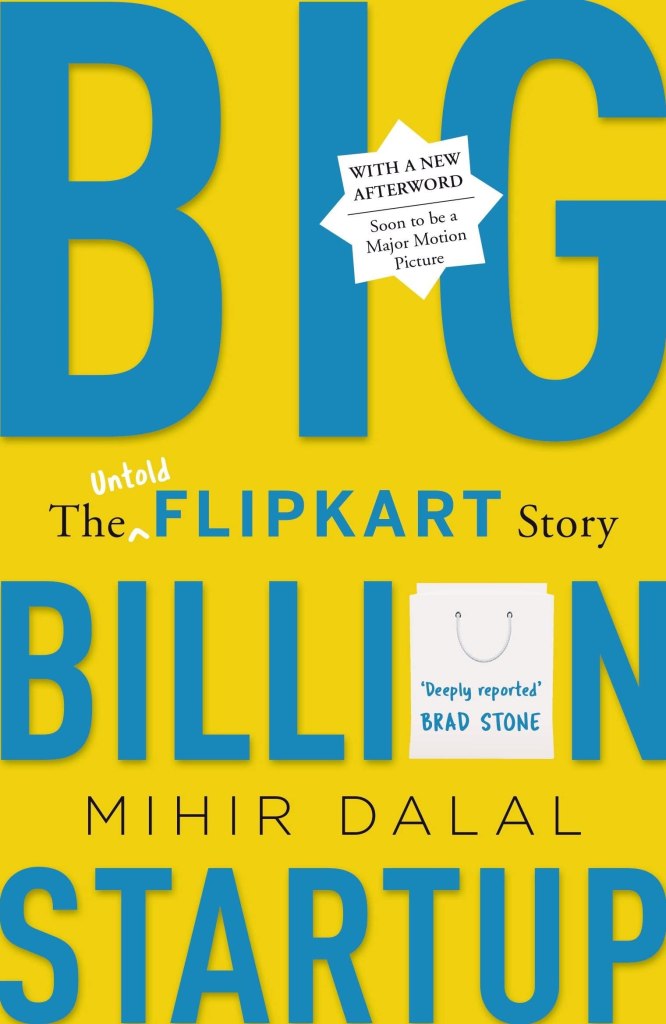
The new paperback edition of Big Billion Startup is available on Amazon
More Stories:
Heavy Metal: In Conversation with Ameer Shahul
A green crusader, emerging technology advocate, public policy leader and…
Tamal Bandyopadhyay: A Roller Coaster Ride
One of the most respected business journalists in India, Tamal…
52@52 : Pourings of Angst, Anxiety and Aspirations
Based in Gurgaon, Avik is co-founder of Expereal India and…
In Conversation with Jitendra Dixit
Author of Bombay After Ayodhya: A City in Flux, which…
In Conversation With Chitra Narayanan
Based in Delhi, Chitra is an editorial consultant for The…
Divya Khanna: The Company We Keep
Based in Bangalore, Divya Khanna is an advertising professional who…

